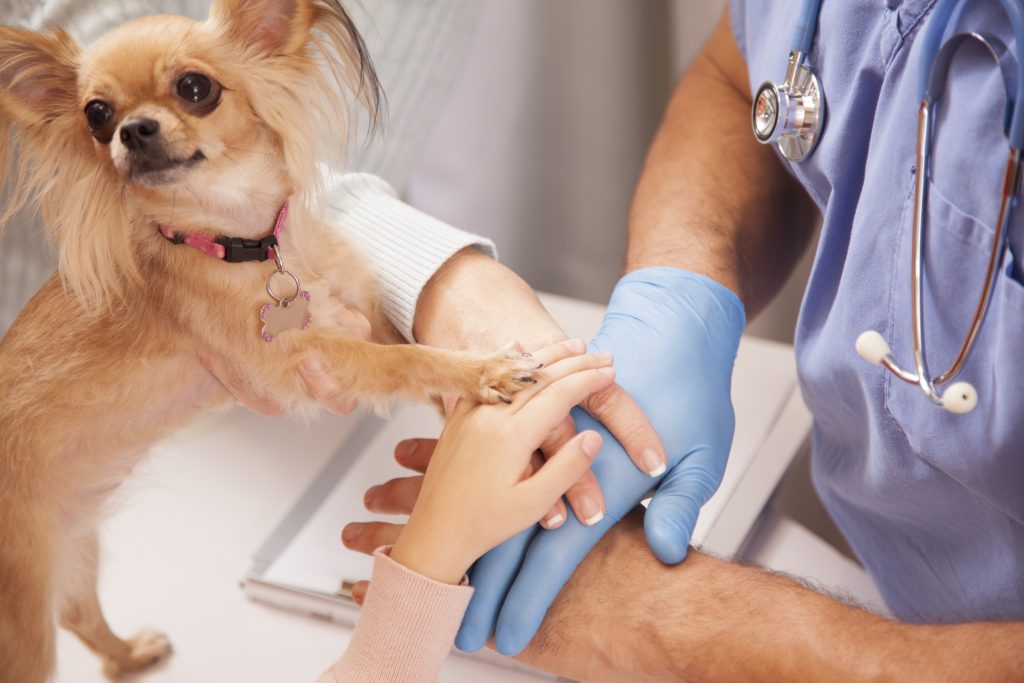 Accidental pet poisoning is one of the most common reasons pet owners seek emergency veterinary care. As a dedicated pet owner, we know you want to do everything possible to prevent your curious pet from getting his or her paws on a potentially poisonous substance, but if you’re like many people, you aren’t sure what’s safe and what isn’t.
Accidental pet poisoning is one of the most common reasons pet owners seek emergency veterinary care. As a dedicated pet owner, we know you want to do everything possible to prevent your curious pet from getting his or her paws on a potentially poisonous substance, but if you’re like many people, you aren’t sure what’s safe and what isn’t.
Our list of the most common pet toxins found in and around the home is a good place to start on the road to creating a safe environment for your four-legged family member.
Common Pet Toxins in the Home
- Food – Most people know that chocolate is bad for pets, but other common food items are also toxic, such as grapes, raisins, onions, and macadamia nuts.
- Xylitol – This sugar substitute used in sugar-free items, such as gum, peanut butter, baked goods, and toothpaste, is extremely toxic to pets. Be sure to check labels and keep all Xylitol containing products away from pets.
- Medications – Many prescription and over-the-counter medicines, including pain relievers, asthma inhalers, ADHD drugs, antidepressants, and even vitamins, can be toxic or fatal to animals. Pets are also at risk of overdosing on pet medications, so keep those out of reach as well.
- Household chemicals – Cleaning products and insect control products, including over-the-counter flea and tick remedies, may be toxic to pets and should be kept in locked cupboards or out of reach.
- Houseplants – Azalea, holly, mistletoe, sago palm, and lilies of any kind are poisonous if ingested by pets.
- Backpacks –Backpacks and purses are often filled with dangerous temptations for pets, including leftover food, gum sweetened with Xylitol, medications, nicotine, and more. Keep these items stored where pets can’t get at them.
Outdoor Concerns
There are a variety of toxic substances your pet may be exposed to in your garage or yard, including:
- Antifreeze – Ethylene glycol, a component of antifreeze, motor oils, and windshield deicing agents, is extremely toxic for animals. Clean up spills immediately and consider purchasing pet-safe versions of these products.
- Rodenticides – Blood clotting problems and hemorrhaging can occur if mouse or rat poisons are ingested.
- Cocoa hull mulch – This attractive smelling mulch contains theobromine, the same ingredient found in chocolate, which causes its toxicity. Cocoa hull mulch can be lethal if ingested by pets.
- Garbage and compost – A curious pet could discover plenty of tempting and dangerous items in an open garbage can or compost pile. Keep both securely covered at all times.
- Lawn and garden chemicals – Fertilizers, herbicides, and other chemicals should be stored in locked cupboards and only used when pets are not present.
- Deicing salts and chemicals – Besides being paw irritants, these compounds can be poisonous if licked off the paws. Wash and dry your pet’s paws after being out in the snow or purchase a set of doggie boots for protection.
With a bit of conscientious effort, we can decrease our pets’ exposure to dangerous toxins in their environments. Take a discerning look around your home and yard and dispose of or properly store and secure anything that could potentially be ingested by your pet.
If you suspect your pet has ingested a common pet toxin or anything else that he or she shouldn’t have, give us a call at (201) 800-6039 to seek emergency veterinary care immediately.

